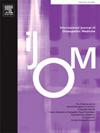整骨疗法的双重特性
IF 1.5
4区 医学
Q2 MEDICINE, GENERAL & INTERNAL
引用次数: 0
摘要
与骨科医师身份有关的问题很可能具有由传统和现代元素构成的双重特征。在我们看来,通过将这些元素作为能够对话的元素,我们旨在进行的分析似乎是有力的。我们建议通过保罗-利科尔(Paul Ricoeur)的概念来进行分析:"身份"(idem identity)涉及提供某种时间稳定性的要素,而 "身份"(ipse identity)则体现骨病学构成要素的可变方面。因此,整骨疗法的特性将由这两种定期互动的影响因素共同构成,因为它们同时服务于两个问题:塑造学科特性和改善病人护理的要求。本文章由计算机程序翻译,如有差异,请以英文原文为准。
The double facets of osteopathy's identity
Questions relating to osteopathic identity are likely to be characterised by double facets made up of both traditional and contemporary elements. The analysis conducted aims to be robust by presenting these components as elements able to dialogue. It is through Paul Ricoeur's concept that we propose as an approach: the idem identity concerns the elements that provide a certain temporal stability whilst the ipse identity embodies the variable aspects of the constitutive elements of osteopathy. Osteopathy's identity would thus be modelled by the association of these two regularly interacting influences insofar as they serve both issues: shaping a disciplinary specificity, and the requirements focused on the improvement of patient care.
求助全文
通过发布文献求助,成功后即可免费获取论文全文。
去求助
来源期刊
CiteScore
2.20
自引率
36.80%
发文量
42
审稿时长
3 months
期刊介绍:
The International Journal of Osteopathic Medicine is a peer-reviewed journal that provides for the publication of high quality research articles and review papers that are as broad as the many disciplines that influence and underpin the principles and practice of osteopathic medicine. Particular emphasis is given to basic science research, clinical epidemiology and health social science in relation to osteopathy and neuromusculoskeletal medicine.
The Editorial Board encourages submission of articles based on both quantitative and qualitative research designs. The Editorial Board also aims to provide a forum for discourse and debate on any aspect of osteopathy and neuromusculoskeletal medicine with the aim of critically evaluating existing practices in regard to the diagnosis, treatment and management of patients with neuromusculoskeletal disorders and somatic dysfunction. All manuscripts submitted to the IJOM are subject to a blinded review process. The categories currently available for publication include reports of original research, review papers, commentaries and articles related to clinical practice, including case reports. Further details can be found in the IJOM Instructions for Authors. Manuscripts are accepted for publication with the understanding that no substantial part has been, or will be published elsewhere.

 求助内容:
求助内容: 应助结果提醒方式:
应助结果提醒方式:


